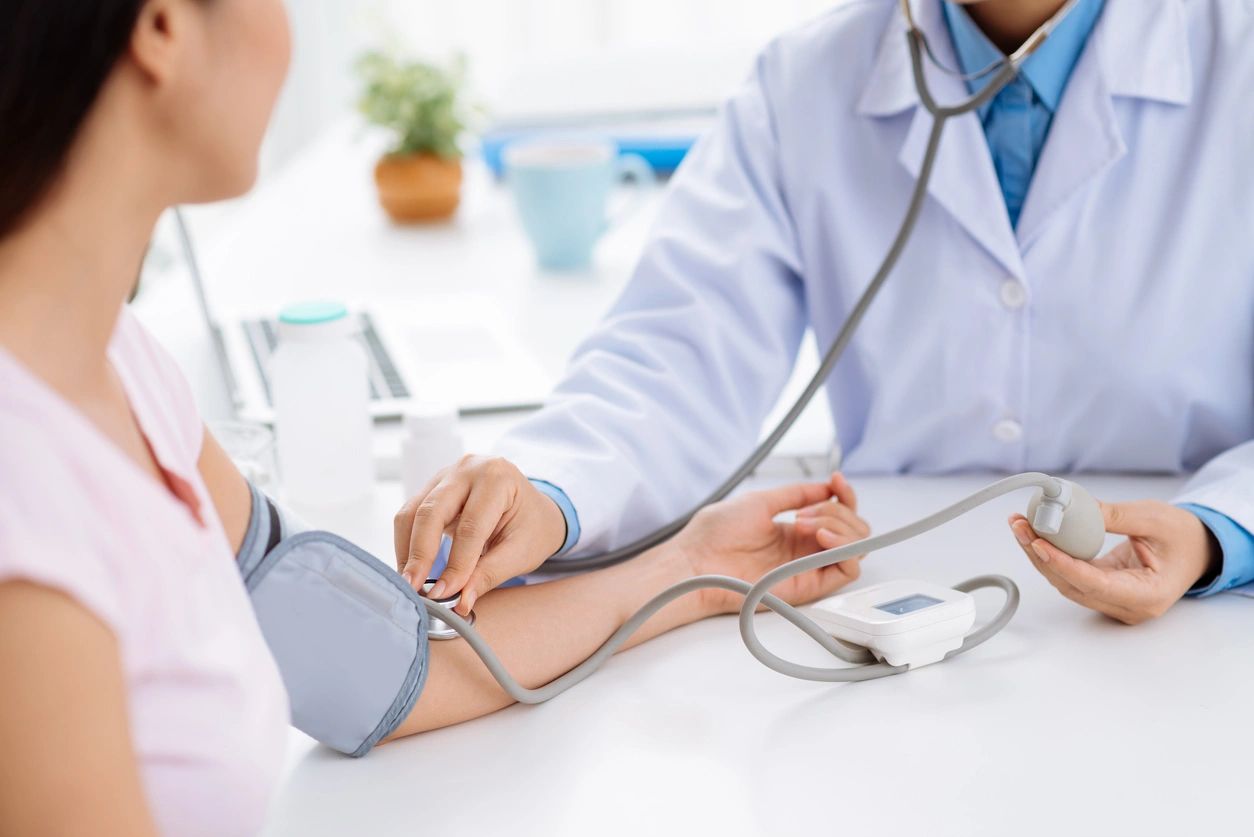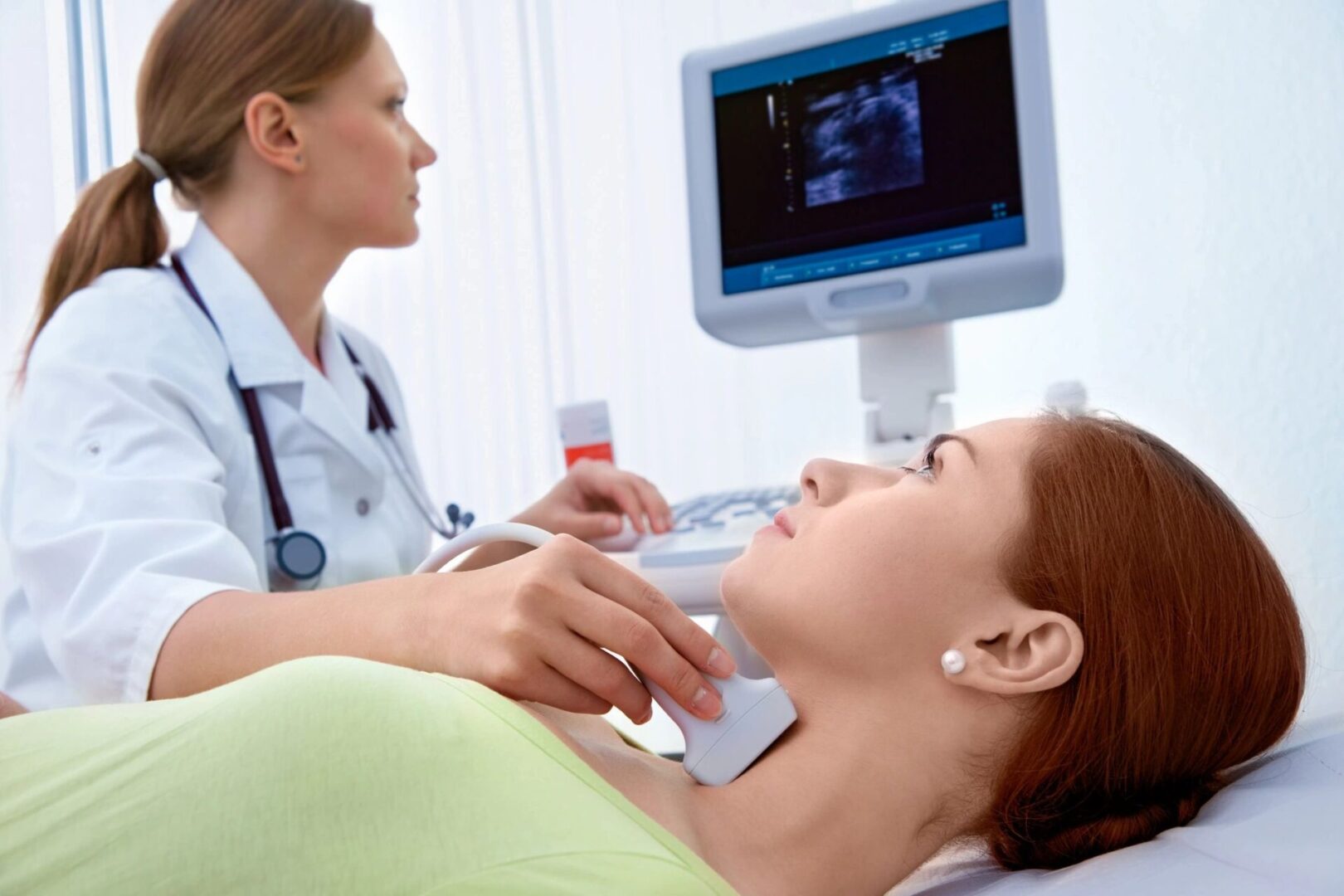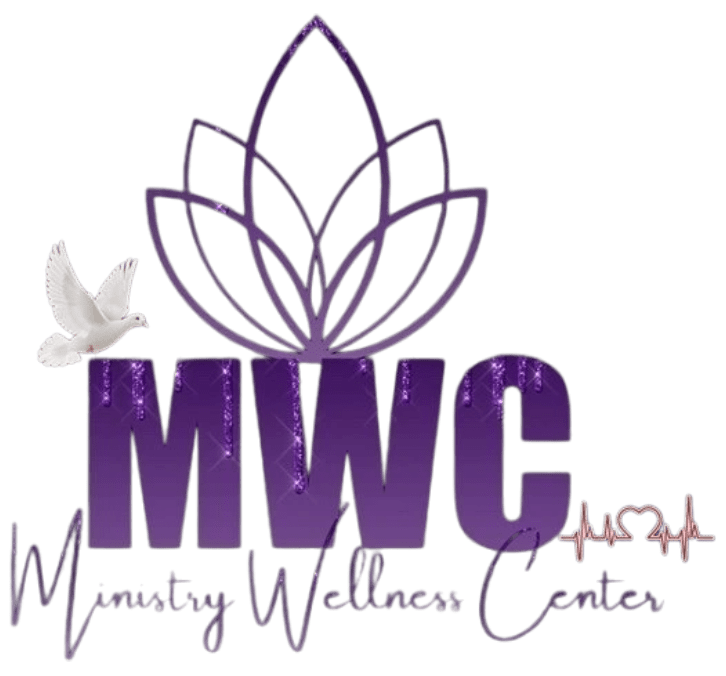Obesity/Overweight:
Excess weight can lead to a variety of health problems, including heart disease, diabetes, stroke, high blood pressure, diabetes, certain types of cancer, and sleep apnea. Obesity and overweight occur due to a combination of genetics and environmental factors like unhealthy eating habits, sedentary lifestyles, and lack of physical activity. At Ministry Wellness Center, we offer weight management programs and nutritional counseling to help individuals achieve a healthy weight and reduce the risk of chronic health problems. Our screening services can help you identify your risk for these conditions and develop a plan to manage your weight and improve your overall health.


High Blood Pressure:
High blood pressure, or hypertension, occurs when blood flows through the arteries at a higher than normal pressure, causing damage to the blood vessels and leading to health problems such as heart disease, stroke, and kidney disease. Contributing factors include genetics, unhealthy lifestyle habits, and underlying health conditions. We offer blood pressure monitoring and lifestyle modification programs to help you manage your blood pressure and reduce the risk of complications. Our screening services can identify your risk for high blood pressure and develop a plan to manage your blood pressure and improve your heart health.
Diabetes:
Diabetes is a chronic condition that affects millions of people around the world. It affects the way the body processes blood sugar, leading to high blood sugar levels that can cause damage to the organs and nerves. Risk factors include genetics, obesity, unhealthy eating habits, and sedentary lifestyle. It can lead to several health problems, including heart disease, kidney failure, and nerve damage. We offer diabetes management programs that focus on lifestyle modifications, nutritional counseling, and medication management to help individuals manage their blood sugar levels and prevent complications. Our screening services can help you identify your risk for diabetes and develop a plan to manage your blood sugar levels and prevent complications.


High Cholesterol:
High cholesterol occurs when there is too much of a fatty substance called cholesterol in the blood, which can cause blockages in the arteries and increase the risk of heart disease and stroke. Risk factors include genetics, unhealthy eating habits, lack of physical activity, smoking, and excessive alcohol consumption. We offer cholesterol management programs that focus on lifestyle modifications, nutritional counseling, and medication management to help individuals manage their cholesterol levels and reduce the risk of complications. Our screening services can help you identify your risk for high cholesterol and develop a plan to manage your cholesterol levels and improve your heart health.
Thyroid Disorder Screening:
The thyroid gland plays a crucial role in regulating metabolism and energy levels. Thyroid disorders occur when the thyroid gland does not produce enough hormones, leading to health problems such as weight gain, fatigue, and depression. Risk factors include genetics, underlying health conditions, and environmental factors. We offer thyroid disorder screening to help individuals detect and manage any thyroid-related health problems. Our screening services can help you identify potential thyroid problems and develop a plan to manage any issues, and it offers comprehensive testing and personalized treatment plans to help individuals manage their condition and improve their overall health.


Cardiovascular Risk Assessment:
Heart disease or cardiovascular disease is the leading cause of death worldwide. We offer cardiovascular risk assessment programs that use advanced diagnostic tools to assess an individual's risk of developing heart disease and stroke. Assessing an individual's risk of developing heart disease can help prevent its onset. Risk factors include genetics, unhealthy lifestyle habits, and underlying health conditions. Our programs focus on lifestyle modifications, medication management, and nutritional counseling to help individuals manage their cardiovascular risk factors and prevent complications. Our cardiovascular risk assessment can help you identify your risk for heart disease and develop a plan to manage your risk factors and improve your heart health.
Cancer Screenings:
Early detection is key when it comes to cancer. Risk factors vary depending on the type of cancer, but genetics, unhealthy lifestyle habits, and environmental factors can increase the risk of developing cancer. We offer cancer screening programs that use advanced diagnostic tools to detect and diagnose various types of cancer at an early stage. Our programs focus on early detection, prevention, and treatment to help individuals manage their cancer risk and improve their overall health. Our cancer screening program offers a range of screening services, including breast, lung, colon, cervical, and prostate cancer screenings. We provide personalized counseling and support for individuals throughout the screening process.


Breast Cancer Screening:
Breast cancer is one of the most common cancers in women. At the Ministry Wellness Center, we focus on identifying breast abnormalities, including tumors and cysts, to detect breast cancer at an early stage through clinical breast exams.
Methods:
We offer clinical breast exams conducted by experienced healthcare providers. This involves a thorough physical examination of the breast tissue to check for any lumps, irregularities, or changes. For mammography, we recommend individuals to contact their local health department, which typically provides mammography services. Mammography is a low-dose X-ray of the breast tissue and is an essential part of breast cancer screening. Regular clinical breast exams, in conjunction with mammography as advised by your local health department, are essential for early detection and may also include breast ultrasound or MRI in certain cases.
Lung Cancer Screening:
Lung cancer is often asymptomatic in its early stages, making regular screening crucial, especially for smokers and high-risk individuals. At the Ministry Wellness Center, we prioritize lung health by providing counseling and risk assessment for lung cancer.
Methods:
Our healthcare professionals offer counseling and comprehensive risk assessments to help individuals understand their risk factors for lung cancer. We discuss smoking history, exposure to environmental factors, and other relevant information. Following this assessment, we guide patients to their local health department for further lung cancer screening, which typically includes low-dose computed tomography (CT) scans. These CT scans are conducted by trained radiologists and provide detailed images of the lungs to detect abnormalities and enable timely intervention. By offering counseling and risk assessment for lung cancer, we empower individuals to understand their risk factors and take proactive steps towards their lung health. We recognize the importance of timely screening and work in collaboration with local health departments to ensure that our patients receive comprehensive care for their lung health. Early detection is critical, and we are here to support you on your journey towards better lung health.


Colon Cancer Screening:
Colorectal cancer is highly preventable through regular screenings. Our colon screening program aims to detect precancerous polyps or early-stage cancer in the colon or rectum.
Methods:
Colonoscopies are a primary screening method, involving the insertion of a flexible tube with a camera into the colon to visualize and remove polyps if found. We may also conduct stool tests (e.g., fecal occult blood tests) to check for blood in the stool, which can indicate potential issues.
Cervical Cancer Screening:
Cervical cancer screenings focus on the early detection of abnormal cervical cells that could develop into cancer. Regular screenings are crucial for women's health.
Methods:
Pap smears are commonly used to collect cervical cell samples, which are then examined for any irregularities. Human papillomavirus (HPV) tests may also be performed to check for the presence of high-risk HPV strains.


Prostate Cancer Screening:
Prostate cancer is a concern for men, especially as they age. Our prostate screening services aim to identify prostate cancer at an early stage when it is most treatable.
Methods:
We offer prostate-specific antigen (PSA) blood tests to measure PSA levels, and digital rectal exams (DRE) where a healthcare provider examines the prostate gland for any abnormalities. These tests are essential for monitoring prostate health and identifying potential issues.
Addiction Screening:
Addiction is a chronic disease that can affect anyone regardless of age, gender, or social status. It can have serious negative impacts on an individual's physical, emotional, and social health. It affects the brain and behavior, leading to compulsive drug use despite harmful consequences. Substance abuse disorders can include alcohol, opioids, stimulants, and sedatives. Addiction screening involves a comprehensive evaluation of an individual's substance use history and associated behaviors. Addiction screening can help identify problematic behaviors early on and provide support for individuals to overcome their addiction. Our addiction screening program offers counseling services, support groups, and referrals to specialized treatment centers.

